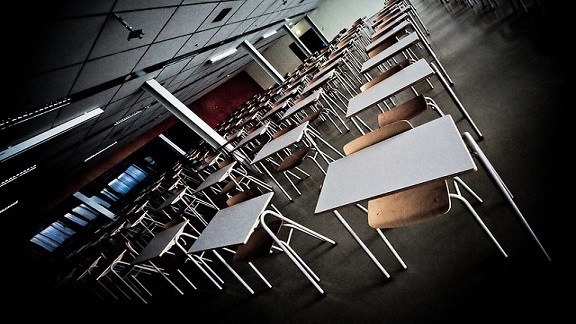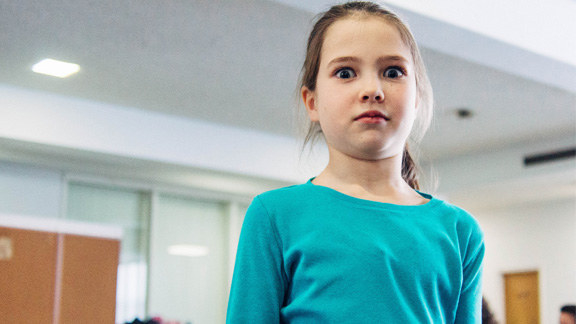Betsy DeVos' Bad, Bad, Very Bad Week
Betsy DeVos' week went from bad to worse, reminding educators, parents, lawmakers and other public education advocates that she is willing to say anything to eliminate vital education services in pursuit of her and President Trump's number one goal: creating a national private school voucher program. In her defense of vouchers, charter schools, deep budget cuts and the elimination of education services and programs, DeVos painted a picture based on mischaracterizations, half-truths, slights and falsehoods.

Ignores how Indiana voucher program harms students

Via educationvotes.nea.org
DeVos began her week speaking to the American Federation for Children, a national voucher advocacy group she founded, funded and chaired until she was picked by Trump to be secretary of education. DeVos spoke in glowing terms about the state's voucher program, the nation's largest at a cost of $146 million and with more than 34,000 students.
What DeVos didn't mention about the Indiana program (and most other voucher programs):
* Voucher schools get to choose which students they accept.
* Voucher schools have the right to turn away students with disabilities and deny them their rights.
* Fifty-five percent of the students who use vouchers were already attending private schools, belying a central justification for the program, that it was designed to benefit students from low-income families.
* The voucher program has created a $53 million deficit in the state’s education budget.
* Voucher schools receiving taxpayer money are not required to submit annual financial reports, resulting in cases of financial mismanagement and fraud.
* Voucher schools can deny a student based on academic or disciplinary history.
Calls educators, public school advocates "flat-earthers"

Victoria Choi / Via bit.ly
While in Indianapolis, moments after saying "education should not be a partisan issue" and imploring listeners, "Everyone – in both parties – should support equal opportunity in education," DeVos described advocates of public schools as "flat-earthers."
Wittingly or unwittingly burning bridges once again with the millions of women and men who strive everyday to teach and safeguard the 90% of students who attend public schools, DeVos said, "Defenders of our current system have regularly been resistant to any meaningful change. In resisting, these 'flat-earthers' have chilled creativity and stopped American kids from competing at the highest levels."
I wonder how many public school educators feel DeVos' statement contributes to meaningful dialogue?
Compares choosing schools to choosing a phone

Kyle Mahaney
In DeVos' world -- and that of other corporate ed reformers -- schools are interchangeable commodities. Want a new phone or a new education delivery system? Consumers just have to choose among the various options and sales pitches, right?
According to an analogy drawn up by DeVos in Indianapolis, neighborhood public schools are the equivalent of the flip phones of yesteryear. But one of many differences: you can return a defective phone to the manufacturer; parents have no such options when their child's voucher school shutters without notice in the middle of the school year. Or what about the virtual school that doesn't track student participation online? Or the voucher school that hires non-certificated teachers?
Said DeVos, "10 years ago, I was really attached to my flip phone. It was cutting edge technology, and it worked great. Today, I like my current smartphone – a lot – but I refuse to think there could never be a future improvement or a better model. We should embrace the Betsy DeVos' Bad, Bad, Very Bad Week:
